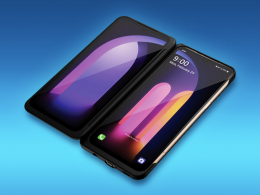Mobile devices are among the most important college tech essentials for students. They’re more than just communication devices or tools to search the internet and scroll social media.
Instead, they’re how students navigate campus and campus services, check for class or schedule updates, and even take notes in class.
Powering these devices—smartphones, tablets, and wearables like smartwatches and Ray-Ban Meta glasses—means finding the best phone plans for college students that are appropriate for how much you use them.
When seeking out the best phone plans for college students, consider factors like how much talk, text, and data you use, your budget, and the coverage in your area to ensure you can stay connected.
Why college students may need a specialized phone plan
As a college student, you have unique mobile needs. Most obviously, you may move between home in the summer and school in the fall, requiring reliable service that follows you the whole way. Plus, you may have specific coverage requirements based on your major, year, and more.
When shopping for plans, be sure to consider:
- Your school’s location – If you’re studying in an urban school located in a major city, you’ll likely have multiple options for network providers. But if your home or school is in a rural area, you may only have one choice for wireless service. If you’re studying abroad, you likely need to consider a phone plan for international students to make sure you can call back to the U.S. without unexpected charges and fees.
- Your course of study, degree level, and year of study – Your major, degree level, and year may influence how much you use your mobile devices. While you may use your phone less while you’re taking classes and studying, you may use your tablet more for notetaking and other tasks. It’s important to account for your connectivity needs across your devices.
There’s no one-size-fits-all formula for choosing a cell phone plan. By weighing these factors, you can determine the best plan for your individual needs and take that next step toward wireless independence.
Transitioning from a shared phone plan to your own phone plan
If you’ve been on someone else’s phone plan, like your parents’, there are certainly benefits to continuing to do so. They may be paying less per person with multi-line discounts. However, there are benefits to transitioning to your own plan, too.
Maybe you want to have more independence or be more in control over your plan’s details. You can begin this transition by paying your own bill while on their plan. Not all carriers offer this, but we make it easy.
AT&T SplitPay offers an unprecedented option. It allows each user on the account to be responsible for paying their own bill. Setup is easy: Log in to the myAT&T app and visit the Billing Center.
Eventually, however, you’ll likely have to sign up for your own phone plan. Be proactive about the process.
Decide when you’d like to switch to your own phone plan, set that date for yourself, and budget to pay for your own service when the time comes.
Understanding your talk, text, and data needs
If you already have a phone, look at your bill to see how much usage you have per month. Although it may change while you’re in school, looking at how much talk, text, and data you’ve used over the past several months can give you a starting point for what you may need.
Questions to ask yourself are:
-
- How much time will I spend talking on the phone?
- How many texts do I send in a typical month?
- How much data do I usually use?
- How much do I think these will change once I’m in school?
Or if you’re beyond your freshman year, look at the average of how much you’ve already been using monthly. With these answers in mind, you can begin to look at your plan options across carriers.
Note that many phone plans require a credit check and deposit for new users. Check with your carrier ahead of time to see what that may look like, so you can plan and budget accordingly as you shop for the type of plan that may work for you.
Types of student phone plans to consider
Now that you know what your current usage is like, you can begin your search for the best phone plan for college students. Seeing all your options might also feel overwhelming at first. It becomes simpler when you keep your anticipated usage and budget in mind.
Affordability and budget-friendly options
How much you pay for your phone plan depends on the coverage, data, and services you need. If you’re in the market for budget-friendly packages, you can try:
-
- Prepaid plans – A prepaid plan is a phone plan that allows you to either pay for your service on a month-by-month basis or prepay your bill for a certain period of time. This is different from postpaid plans, which bills you after you’ve used your phone for the month. Some prepaid plans give you a specific amount of talk, text, and data each month, while others, like our prepaid plans at AT&T, include unlimited talk, text, and data.
[Read: Prepaid vs postpaid plans: What’s the difference?]
In our prepaid plan options, you can choose a month-to-month plan or prepay in advance for 12 months of service.
You may also save money if you sign up for and maintain AutoPay to ensure your bill’s paid on time. Within our plans, you have other features, like device security and unlimited text to other countries.
[Read: Why a prepaid phone may be right for you]
-
- Student discounts – Some carriers offer student discounts on popular phone plans. Certain schools may also get additional offers on top of these monthly savings. We offer a monthly discount for students who are AT&T customers. Check if your college is on the list to take advantage of our student discounts.
Take your time, know your options, and plan ahead so you can determine if prepaid or postpaid is what you need, and if you qualify for a student discount to help you save money.
Key features to consider in a student phone plan
Providers offer a variety of features and services with their plans. Some include things like mobile security while others require you to pay for those features separately.
Unlimited talk, text, and data essentials
You may not want to keep track of how much data you’re using or how many texts you’re sending. Unlimited plans free you from this.
Instead of cutting off your service when you hit data limits, you may only experience a slowing down of your speeds. Check the plans you consider to know what the terms are for data usage.
Domestic and international coverage
Research carriers to understand what their coverage looks like on campus and if you live off campus, at home. If you’re an international student, you want to understand how your plan works and what it includes if you’re outside of the U.S. Check out our coverage map to see AT&T service in your area.
Hotspot capability
Some mobile devices can be used as a hotspot. This allows you to use your cellular connection to connect other devices to the internet when Wi-Fi isn’t available at your location. For example, you can use your phone hotspot to connect your tablet to the internet.
Your plan has to allow for this capability, so consider choosing a plan that does. Or if you want a data-only plan to connect your standalone hotspot, laptop, or tablet anytime or anywhere, there are options for that as well.
Mobile security
Protecting your data and personal information goes hand-in-hand with having a mobile device. Look for plans that include mobile security, so you don’t have to purchase third-party protection.
You can find an affordable plan that also includes the features you need to keep you connected. With that, there are also ways to help you manage your plan to make sure you stay within your budget.
Tips for maximizing savings on your student phone plan
It’s no secret that many college students are on tight budgets and hoping to save wherever they can. To maximize savings on your student phone plan, try:
Avoiding overage charges and utilizing plan benefits
The easiest way to avoid overage charges is to choose a plan with unlimited talk, text, and data. But, if you do have a plan doesn’t offer this convenience, you may be charged fees when you go over your allowed minutes, texts, or data.
Overage charges may cost much more than upgraded plans. If you use a lot of data, talk, and text, switch to an unlimited plan instead of dealing with caps.
Bundling options with family or roommates
An affordable multi-line plan, like AT&T Value PlusSM VL can help you save more when you have more lines on one account. People to think about adding to a plan might include:
-
- Significant other
- Other students on campus
- Friends or family outside of school
This could mean discounts for everyone. Each person can pay for their own bill through AT&T SplitPay, so no one’s on the hook for someone else’s bill.
Device compatibility and bring-your-own-device (BYOD) considerations
An easy way to make sure you have the latest phone when you’re on a budget is to finance. While this works for many users, it does also increase your bill.
You may want to bring your own device to your new plan. Our BYOD offer, for instance, can save you up to $360 each year per line you add. Plus, with instant eSIM service available online, you can get your phone up and running without having to visit a retail store.
On a side note, if you do want to purchase a new device and stay up-to-date with the latest mobile phone, an option like AT&T Next Up AnytimeSM is one of AT&T’s best bundle offers.
This contract enables you to upgrade your phone early and have the latest smartphone every year with your choice of plan.1
Final thoughts on what to consider when choosing the right phone plan for college students
When considering the best phone plans for college students, think about your unique needs: your data limits, the area where you’ll be living, your responsibilities, and more.
Oftentimes, the best student phone plan option is an unlimited, multi-line plan that saves you on your monthly bills without having to worry about excess usage or overage fees.
We offer both multi-line plans and student discounts at AT&T to help make your college experience less stressful and more affordable. Browse our wireless plans to find a package that helps support your academic, personal, and professional success.
This article was edited by Zoya Cochran on January 27, 2026.
1 *Req’s purchase of eligible smartphone on AT&T Installment Plan with extra $10/mo. Next Up Anytime feature, qual. credit and elig. svc. Upgrade elig. with qual. turn in. Max 3 upgrades in a 12-month period. Limits & restr’s apply.





